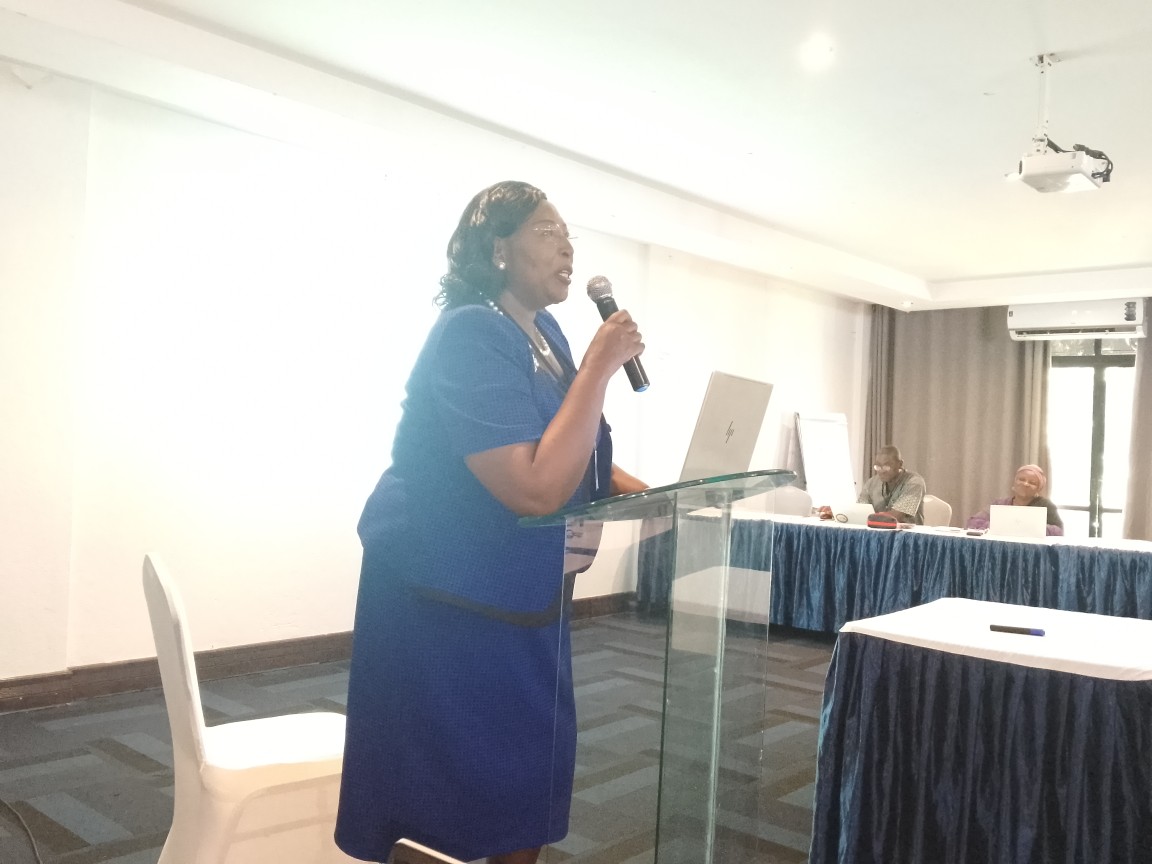|
Getting your Trinity Audio player ready...
|
MOMBASA, KENYA – Scientists attending the African Union Development Agency (AUDA-NEPAD) strategic meeting on gene editing in Mombasa, Kenya have called for muti-stakeholder collaboration to ensure the success of the biotechnology meant to ensure food and nutrition security in Africa.
In her presentation, Dr. Florence Wambugu, the Chief Executive Officer of Africa Harvest, said gene editing has a number of advantages for African agriculture.
“Modern technologies allow scientists to make accurate and precise site-specific changes to an organism’s genetic material (DNA) to remove or introduce specific genetic traits. Since gene editing involves a small, controlled tweak to a living organism’s existing DNA, there is no introduction of a new foreign gene. The product resembles that of natural breeding.
“There is no need for Gene Editing Technology to go through the strict and inhibitory regulations that can prevent scientists, farmers, and the public from exploiting its potential benefits. As a result, consistent and friendly science-based regulatory policies for gene editing products are necessary for consumers to have full and timely access to the benefits of the technology,” Dr. Wambugu said.
The scientist said developing countries require innovative breeding tools to meet the demand for food, adding that the technology has the potential to improve food security and reduce import bills in Africa.
Application of gene editing to local needs would include increased nutritional composition in local and regional varieties that farmers and consumers are familiar with. In addition to improved nutrition, applications such as improving disease resistance in local food crop varieties, improved drought tolerance and increased insect resistance would be of vital importance.
With high levels of poverty, malnutrition, food security problems, and low agricultural productivity in Africa, gene editing can offer solutions to some of these problems.
There is a need to identify synergies and efficiencies through better Gene editing technology stakeholder coordination. Champions selected from Gene Editing Experts in Africa can be engaged to advocate for the technology. They can influence policymakers for a supportive regulatory environment for the technology.
There is also a need to further empower the champions to support the adoption of the technology. These champions can come from the Network of Africa Science Academies (NASAC) and other like-minded organisations; country national research organisations; universities; the media; regulatory agencies; researchers; policymakers; and the public.
Speaking in the same meeting, Dr. Shakirat Ajenifujah-Solebo, the Deputy Director of Nigeria’s National Biotechnology Development Agency (NABDA), said there is a need to identify and develop next-generation genome sequence information of largely under-researched 101 African Orphan Crops.
“We should utilise Africa’s “forgotten crops” to provide nutrition to tackle malnutrition and hidden hunger in Africa through partnerships. The use of these nutritious, familiar food crops – ‘orphan crops’, ‘minor crops’, ‘underutilized plant species’, or ‘neglected crops’ will address malnutrition, micronutrient deficiencies, or hidden hunger.
“The crops are rich in vitamins, essential minerals, and other micronutrients, yet they are largely unresearched to date. We should make orphan crops more productive and profitable for African farmers to grow, and easier for African consumers to use,” Dr Ajenifujah-Solebo said.
There is a need for diversification and the introduction of food crops resilient to climate vagaries into the food pipeline.
The commitment at different levels of policy interventions, from national to local to consumption and crop management activities, and working with governments, NGOs, and CBOs is required to promote these crops.
She urged the strengthening of national agricultural research systems and other partners to improve orphan crops by the integration of genomic technologies into breeding schemes.






